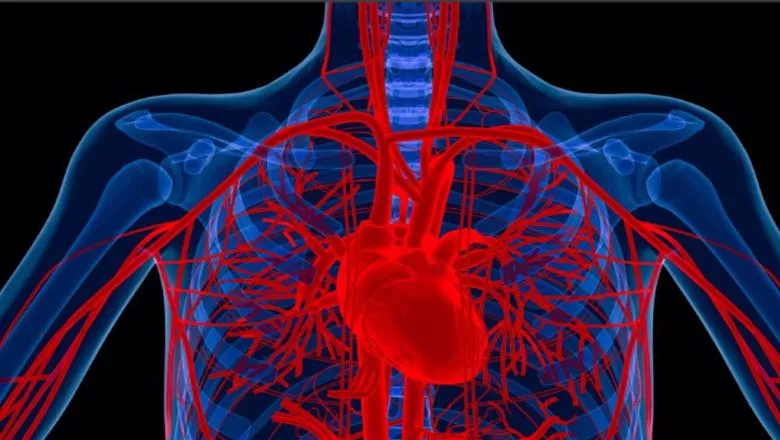11 June 2019
Cause of hardening of the arteries – and potential treatment – identified
King’s researchers have identified why arteries harden and how a medication used to treat acne could be an effective treatment for the condition.

In research published today in Cell Reports, the team of researchers from King’s and the University of Cambridge have identified the mechanism behind hardening of the arteries for which there is no treatment.
Hardening of the arteries is caused by build-up of bone-like calcium phosphate crystals leading to stiffening of the arteries and restricting blood flow to organs and tissues. This condition is associated with dementia, heart disease, high blood pressure and stroke.
Supported by funding from the British Heart Foundation, the researchers found that a molecule known as PAR which is normally associated with DNA repair, also drives the bone-like calcification of arteries.
Using a technique called NMR spectroscopy, the researchers found that when the cells die, they release PAR, which binds very strongly to calcium. Once released, the PAR starts mopping up calcium into larger droplets which stick onto the artery walls where they form ordered crystals and solidify, hardening the arteries.
Co-author of the study, Professor Cathy Shanahan from School of Cardiovascular Medicine & Sciences said:
“This hardening, or biomineralisation, is essential for the production of bone, but in arteries it underlies a lot of cardiovascular disease and other diseases associated with ageing like dementia. We wanted to find out what triggers the formation of calcium phosphate crystals, and why it seems to be concentrated around the collagen and elastin which makes up much of the artery wall.”
Having discovered the links between DNA damage, PAR, bone and artery calcification, the researchers then investigated a way of blocking this pathway using a PAR inhibitor. The researchers found that minocycline – a widely-prescribed antibiotic often used to treat acne, could treat hardening of the arteries by preventing the build-up of calcium in the circulatory system.
Professor Jeremy Pearson, Associate Medical Director at the British Heart Foundation, said:
“Blood vessel calcification is a well-known risk factor for several heart and circulatory diseases, and can lead to high blood pressure and ultimately, a life-threatening heart attack.
“Now, researchers have shown how calcification of the walls of blood vessels takes place, and how the process differs from normal bone formation. By doing so, they have been able to identify a potential treatment to reduce blood vessel calcification without any adverse effects on bone. This type of treatment would benefit many people, and we eagerly await the results of the anticipated clinical trials looking at whether this drug lives up to its early promise.”
The technology has been patented and has been licensed to Cycle Pharmaceuticals by Cambridge Enterprise with the researchers hoping to carry out a proof of principle trial in patients in the next 12 to 18 months.
